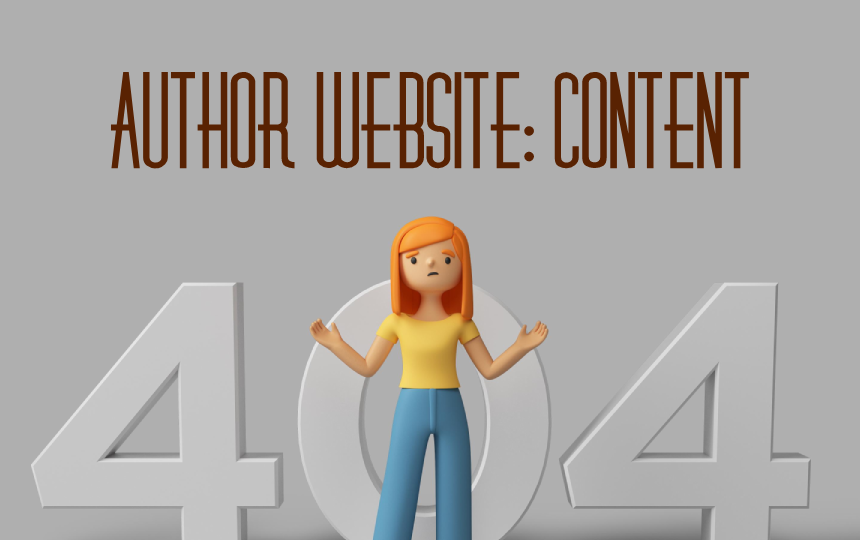Author's website: Content (intro)

To make your website functional you need at least two years. I worked hard and redid my own website several times until I finally found the answer to the question: What is an author's website?
So, what’s the purpose of the author's website, and what should be included in a functional author’s website?
First, let’s clarify what I mean by functional. I have said it several times (and will repeat a few more times): I come from a marketing background and, looking at authors’ websites from my marketing/business perspective - it is the headquarters of all your marketing efforts.
In marketing, your competitors’ websites are one of the things you need to examine before creating your own marketing strategy.
Following my routine workflow, I have made a spreadsheet with fields to note the design and content on the website. I have done my research and in this post, I will talk mostly about text content. Design (also including images), Inner SEO, and Backlinks will be covered in the following posts.
At first, I thought analyzing authors' websites would be fun - Authors are creative people, aren’t they? - but soon I found out that most websites were - in marketing terms - dead.
As creative as authors are, their websites were not-so-inspiring: most offered a free book in exchange for an email. It’s not something that would help you market your book. After all, why should your website visitor bother spending their precious time reading your book (40 000 words!), when they don't even know your writing style?
In this situation, you would gain more to provide a free anthology featuring your short/flash story. The main reason why your website visitor will download and read this anthology is that they can have a taste of the offerings of not just you but quite a few other authors. The probability for your visitor to find something (s)he would enjoy grows exponentially with the number of authors involved in the anthology.
You can later use your newsletter subscribers list to offer the link to the ARC of your book on sites such as BookSirens. In this case, you will have reviews for your book launch week. Moreover, you won’t be seen as a freebie author in the reader’s eyes - that could happen if you make your book free. Why should the reader pay for your book if (s)he can have it free?
I have also noticed that most authors use basic website design templates and some even use stock photos(!). I can give a pass to website design templates but would never allow stock photos to be used.
The author’s website is their marketing headquarters, so it must be well-crafted and filled with valuable unique content. Only by doing so can the main goal of having a website be achieved: to build a newsletter subscribers list while being convenient for the author to use.
Hear me out!
The author’s website must be useful for the author, otherwise there’s no point in having it.
What do I mean by ‘convenient to the author’?
Stay tuned, because I'm going to publish the short e-book "Author's website: What you need to know about it?" and explain further by using my own website as an example of content that you can consider including in your website.
